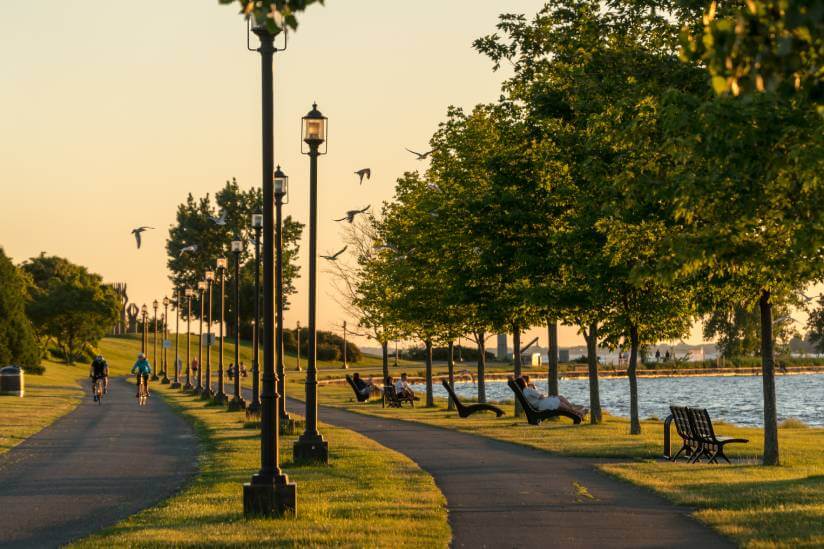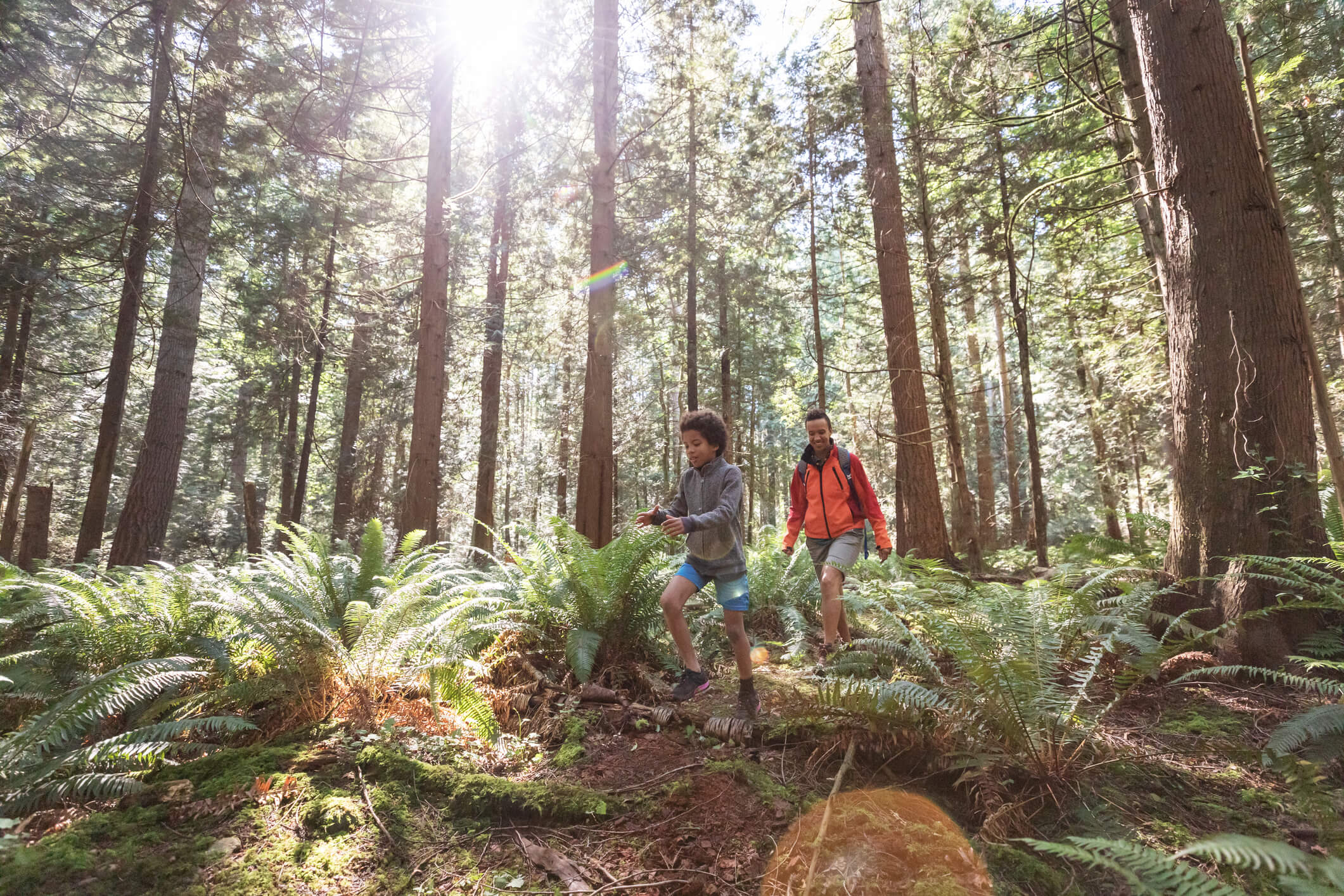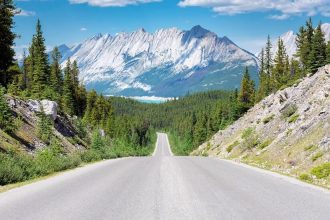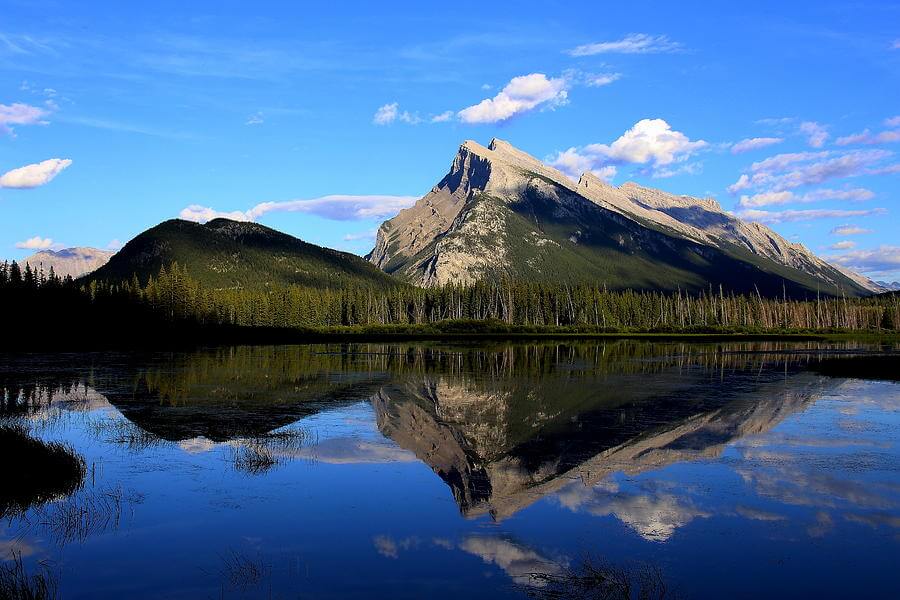
A working holiday in Canada is one of the most worthwhile things that you can cross off your bucket list but there are some things that we wish someone had of told us before relocating permanently.
With that in mind, here are 50 things you should know before moving to Canada.
1. Canada is a BIG place
Sure, you’ve seen Canada on a map but you can take our word for it; you won’t be able to grasp just how ginormous a country it is until your bang smack in the middle of it.
Just how big is it exactly?
Canada is the second-largest country in the world after Russia… To put things into perspective consider this; it would take you four years to walk the entire coastline.
Four friggin’ years! There are cities on the east coast like Toronto that are closer to London than cities like Vancouver, located on Canada’s west coast.
Canada’s 36.5million population is crammed into cities and large towns meaning once you leave these populated areas, you will hit vast empty spaces that go on for miles.
(So if you think you’ll be able to quickly hop from city to city on a budget, think again.)
Read Also:
THE BEST CANADIAN CITIES TO LIVE IN
2. Winter is coming (and it will stick around for a while)
Winter in Canada is harsh and oh boy does it get chilly… Unless you’re from an equally cold part of the world, you might be in for a shock when it comes to Canadian winters.
This is especially true in places like Nunavut, Saskatchewan, and Manitoba where temperatures hit an insane -30 degrees Celsius.
You’ll soon be all too familiar with the fine art of layering your clothes.
If you are not afraid of the winter, there are plenty of fun winter adventures for you.
Register for your WHC Jobs Kit for lists of the top ski resort employers in BC and Alberta, our working holiday jobs search tool and much more!
3. Summer is kind of a big deal!
When you spend the greater part of the year in freezing cold conditions, you learn to cherish the summer months.
Once the snow melts and the sun starts to shine, every patio and beer garden in the city will be packed full of people making the most of the warm weather.
You May Also Like:
7 Must-Do Experiences In Canada
4. Poutine is incredible

There’s a reason Canadians’ love poutine, and it’s because it’s just so TASTY!
There’s only one way to find the best poutine in town – ask the locals. There isn’t a Canadian from New Foundland to Alberta who doesn’t have a favourite poutine spot.
The word ‘poutine’ is slang for ‘mess’, and the cheesy, gravy-soaked dish originated in 1950s Quebec.
Nowadays you can pick up poutine just about anywhere but if you’re on the hunt for authentic poutine, Quebec is where you’ll find it!
Make sure you also check out the rest of the traditional Canadian meals!
Top tip: if you find yourself trying to catch a cab at 03.00 is, poutine is the perfect thing to munch on after a few Molson’s.
5. Canada celebrates cultural diversity
It’s no secret that Canada has welcomed immigrants from all over the world for generations.
No matter what city you’re in, you’ll find yourself surrounded by people from just about everywhere.
Multiculturalism has become a prominent part of Canada’s identity and Canada is seriously ahead of the game when it comes to embracing cultural diversity.
Just how multicultural is Canada?
Well, you might be surprised to hear that more than 40 members of Canada’s parliament we not born in Canada! Cool, right?

6. Canada has two official languages
You might arrive in parts of Canada and ask yourself ‘Did I accidentally catch a flight to Paris?’. Nope, you’re just in Quebec.
If you speak French and you’re headed to Quebec, you’re in luck because there are forces at work to help maintain a decent level of ‘French-ness’ in this part of Canada.
Around 77% of Quebec’s population are native francophones while 95% of the population speak French as a second language.
You’ll notice French language signs in stores and on the streets… and it’s not just language, there are endless French-style eateries, bakeries, wine and cheese shops scattered around the province.
7. You might have to get a new driver’s license
This will depend on where you’re moving from. Some countries have a reciprocal agreement with certain provinces that make it a simple exchange.
When you’re planning your trip, check out the different license equivalency requirements and make sure that you have the correct documentation on hand.
Register for your WHC Jobs Kit for lists of the top ski resort employers in BC and Alberta, our working holiday jobs search tool and much more!
8. Canada’s landscapes will blow your mind
One of the most rewarding aspects of moving to Canada is experiencing the breathtaking landscapes.
If you venture outside of the main towns and cities, you’ll get to enjoy the beauty of Canada’s lakes and mountains and these scenes are truly awe-inspiring.
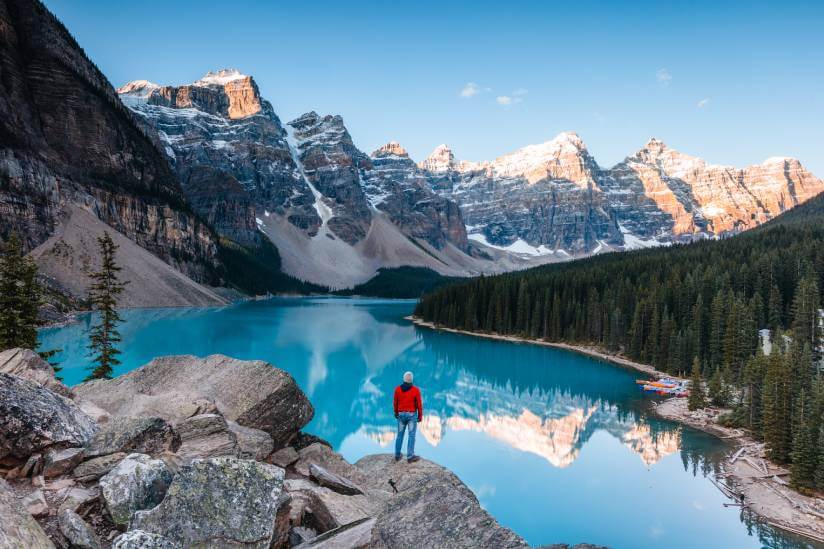
Read Also:
TOP 15 CANADIAN WATERFALLS YOU SHOULD VISIT DURING YOUR WORKING HOLIDAY
9. There are some odd place names in Canada…
Ok, so “odd” might be an understatement. Some of Canada’s more peculiar place names include:
- Dildo, Newfoundland and Labrador
- Ball’s Falls, Ontario (our personal favourite)
- Happy Adventure, Newfoundland and Labrador
- Punkeydoodles Corners, Ontario
- Spread Eagle Bay, Newfoundland and Labrador
- Bacon Cove, Newfoundland and Labrador (We know what you’re thinking and no, we checked; the streets are not lined with delicious bacon.)
- Head-Smashed-In Buffalo Jump, Alberta
- Stoner, British Columbia
- Eyebrow, Saskatchewan
10. Canada’s healthcare system ROCKS
So you might have heard that healthcare in Canada is free and you would be right, to an extent.
Canada’s healthcare system is a Medicare system that is tax-funded. The Canadian government pays for people’s basic health insurance.
Healthcare is then delivered by the private sector so you get top-notch service. If you require any essential medical services, you won’t have to pay a penny.
The only issue is that you might end up waiting a while to see a doctor. You can visit the doctor free of charge but it could cost you if you leave with a prescription.
Dental care, on the other hand, can be quite pricey. You’re best off getting some third-party health insurance sorted. This will help you cover medical, dental and eye care costs.
Top tip: It can take months to process your health insurance so it’s a good idea to arrive with 3+ month’s health care already taken care of.
Adequate health insurance is a visa requirement for Canada so take care of this as soon as possible.
11. Canadian slang will take some getting used to
One of the things to know about Canada is that it has its colloquialisms just like everywhere else. These funny little words and phrases will vary from place to place but here are a few common sayings to help you get up to scratch…
The Canucks (that’s slang for Canadians) have their own special kind of English that can be somewhat confusing for newbies.
For instance, Canadians enjoy sticking the word ‘eh’ (pronounced ‘ay’) at the end of just about any sentence. It doesn’t matter if it’s a question, a statement, or an insult, it’s always appropriate in Canada, eh.
If you want to express that you’ve found something hilarious, you’ll say “That’s jokes”
If you hear the ‘6ix’ – it refers to the cities that make up the GTA or the ‘Greater Toronto Area’. You can thank rapper Drake for the popularity of this one.
If someone says “I’m going to the store to pick up a two-four”, you’re in luck, they’re on their way to get a 24 case of beers and maybe they’ll share it with you!
A klick refers to a kilometre. “The best poutine in town is about 2 klicks away, eh!”
“Oh no! There’s a moose on the loose in the store, he’s causing a real kerfuffle” this means that the moose is causing a commotion.
More commonly this word is used to describe a disagreement or difference in opinion.
Here are 35 Canadian slang terms you probably didn’t know!
Register for your WHC Jobs Kit for lists of the top ski resort employers in BC and Alberta, our working holiday jobs search tool and much more!
12. Get used to saying ‘sorry’
Speaking of Canadian colloquialisms, you better get used to saying sorry all the time if you want to fit in, in Canada.
Extremely polite mannerisms are standard in Canada so it’s best to do as Romans do as they say.
What may seem like borderline excessive apologizing, is a way of showing someone that you consider them to be your equal.
You should be using phrases like ‘may I?’, ‘thank you’, ‘excuse me’ and ‘please’ daily and remember, it’s nice to be nice!
13. Job hunting in Canada can be tricky

Finding a job in Canada might prove more difficult than you imagined. You should start looking as soon as possible.
Once you’ve secured your visa and have your dates set in stone, you can start contacting employers in Canada.
When you arrive, don’t waste any time, get going with that job hunt!
While job-hunting is all well and good for Canadians, it can be difficult even for skilled or semi-skilled newcomers which brings us to…
You May Also Like:
Top 5 Tips For A Successful Job Application
14. Getting your credentials recognized can be a challenge
You might think that having a degree or an equivalent qualification would give you the upper hand when immigrating to Canada but it’s quite the opposite.
Skilled or semi-skilled workers including those with university degrees are statistically less likely to find work than their Canadian counterparts.
Statistics Canada revealed that half of Canada’s immigrants poor are university educated.
If you’ve been trained in a specific area, you may find it harder than in your home country to find a suitable job.
If you have fantastic professional experience and all the qualifications in the world, the Canadian marketplace can still be a tough one to get into, especially as a foreigner.
Before you move to Canada, reach out and try to strengthen your professional network.
Ask people you’ve worked with to recommend you on LinkedIn and vouch for your skills. Make sure you have a copy of any relevant credentials, certificates, diplomas and so on.
Even with this documentation, be aware that professionals often struggle with licensing requirements after immigrating to Canada.
15. Take a pre-arrival training program
There is one way of tackling the credentials issue. The Canadian government provides programs that are free for newcomers.
Taking on this kind of training can significantly improve your chances of finding work in Canada. Find out more about these programs here.
16. Accommodation can be hard to find
Book accommodation for your first month in Canada.
Airbnb is usually reliable and if you don’t mind sharing your space with others then staying in a hostel is always an affordable option.
It will likely be harder than you think to find somewhere to live so give yourself at least 3 to 4 weeks to house hunt.
This is especially true for those who want to spend time somewhere like Banff where accommodation is extremely limited.
You’ll have a better chance of finding somewhere in the city but be warned, it isn’t cheap.
Rent prices are extremely high and you’ll often have to take an unfurnished apartment in cities like Vancouver and Toronto.
17. You don’t have to choose between sun and snow!
Certain regions in Canada experience hot, sunny summers and cold snowy winters.
Canada is one of the few countries where you can get the best of both worlds; spend your summer sunbathing at the beach and your winters snowboarding in the mountains.

18. Canadians are friendly but private people
Canadians are among the friendliest and most polite nations in the world so you might be surprised to find that they are also very private people.
Being overly open about personal details might even be considered rude by some Canadians. If you’re an over-sharer, you might want to tone it down before you move to Canada.
19. There’s a Tim Hortons on every street
If you’ve never heard of Tim Horton’s be prepared to come across one every few hundred meters!
The popular franchise started in Toronto and now there are around 4,000 Tim Hortons in Canada. You’ll probably find yourself popping into your local Timmies for a coffee and a doughnut.
(By the way, if you hear your Canadian friends referring to Timmies, they’re talking about Tim Hortons.)
20. Sick of losing your mittens? Get yourself an ‘idiot string’
While this is generally something that parents do for their kids, it can be helpful for adults too!
Just tie a string to both your mittens or gloves and you won’t have to fear to drop one on your route home.
Yep, it might look a bit silly and maybe your coworkers will mock you but it’s practical and as the saying goes ‘haters gonna hate’.
21. The Canadian banking system can be tricky
The Canadian banking system can be a lot to wrap your head around. It might be a shock to find out that you must pay the bank to keep your bank account in ‘negative interest’.
On the plus side, it helps you to establish a credit record in Canada, which will bode well for you in certain circumstances like if you decide to buy a car.
Watch out for service charges and debit transactions, it’s easier than you might think to fall into debt in Canada.
22. Canada is very much accepting of people from all backgrounds
Whether you’re a corner shop worker or a fancy pants CEO, you’re always going to be treated equally for the most part.
Regardless of your gender, sexual orientation, ethnicity or race you’ll be welcome in Canada. Canada is generally quite safe for immigrants and people of all backgrounds.
23. Staying connected is pricey
If you want a phone with all the bells and whistles (internet, texting, calls) then you’re going to be paying some of the highest rates for wireless in the entire world.
Worthwhile pay as you go plans are hard to come by and most Canadians are on some form of a cell phone contract.
We would recommend taking advantage of free public Wi-Fi as much as possible – it’s available pretty much everywhere you go in Canada’s cities.
24. Remember to leave a tip!

Tipping is commonplace in Canada. In some areas, restaurant workers make very little, less than minimum wage in many cases – that’s why tipping is appreciated by staff.
Generally, a tip can add an extra 15%-30% to your bill, so be prepared to spend a little extra when dining out.
You May Also Like:
ARE TIPS TAXABLE IN CANADA?
25. Canada has bridges for animals
There is a diverse range of animal species in Canada.
All those wide-open spaces are home to a whole bunch of animals and to prevent these creatures from being hit by cars, the Canadian government has built animal crossing bridges to keep our furry friends out of harm’s way.
26. The price tag doesn’t include tax
You’re browsing in a store. You come across a nice pair of shoes that you like. You go to the cashier and when she tells you the price, it’s far more than is shown on the price tag.
Much like their American neighbours, Canadian price tags don’t include tax. This means that when you’re shopping for clothes, food or whatever else, you’ll have to get used to working out mental calculations.
27. Canadians are obsessed with ice hockey
Canadians are obsessed with ice hockey – or just ‘hockey’ to Canadians. If you want to fit in and contribute to those water-cooler chats, you might want to familiarise yourself with what’s what when it comes to hockey!
28. Get ready to play a game of shinny!
Eh, hold on just a sec, what’s ‘shinny?’
Shinny is an informal game of hockey, usually played on some kind of frozen pond or lake.
Canadians love getting together for a friendly game of shinny on a chilly winter evening.
29. Canada’s education system is amazing
Canadians are a very well-educated nation. Their approach to schooling and their education system is one of the best in the world.

30. Canada is an animal lovers paradise
If you love animals of all shapes and sizes, then you’re gonna love Canada. I mean, come on their nationals mascots are the moose and the beaver!
*Be warned, beavers (as cute as they might seem) have been known to attack dogs, bite people’s hands, flood roads and generally cause mayhem.
If you decide to check out any of Canada’s stunning national parks, you’ll get to see a whole array of wildlife, just keep an eye out for hungry bears!
31. Watch out for bears
We’re not kidding, bears are a serious issue in Canada. Bears are dangerous predators.
They’re strong, they’re fast, and they’re super scary. Canada has three types of bears that you should be worried about; grizzly bears, black bears, and polar bears.
There are around 500,000 black bears in Canada but don’t worry, they probably won’t come too close unless they’re desperately searching for food. You’ll usually find them hanging out in trees.
Grizzly bears are much more of a threat to humans. When standing, a grizzly bear can be up to 7ft tall. Holy moly.
There are about 20,000 of these big grizzly fellas in Canada and they’re much more likely to attack humans than their tree-climbing cousins.
And last but certainly not least we have our Arctic friends, the polar bear.
Canada is home to around 70% of the world’s polar bear population. A polar bear won’t think twice about attacking a human.
It’s not unheard of for residents in certain areas like Manitoba to leave their car doors unlocked in case someone needs a quick escape from a polar bear attack! Yikes.
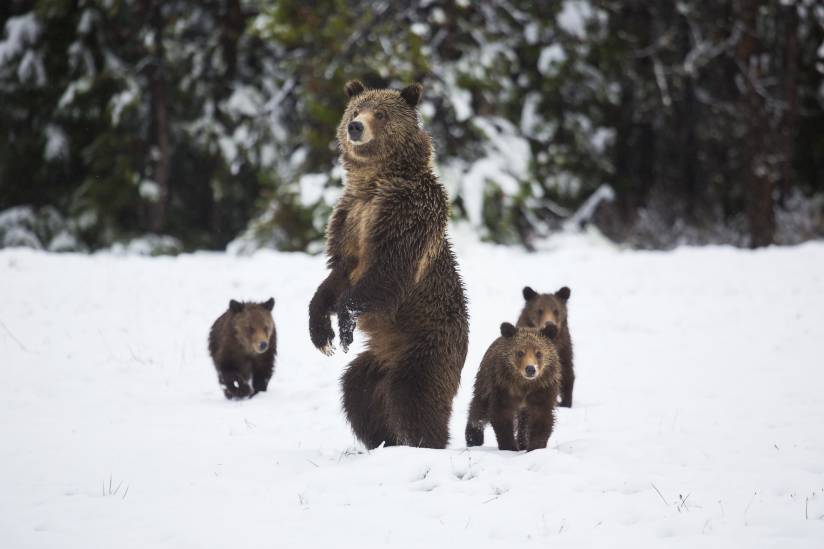
32. Expect to find milk in a bag in your local supermarket
“Hey, could you pick up a bag of milk on your way home?” – just doesn’t sound right, does it?
In Quebec and Ontario, milk commonly comes in bags.
33. You will become a maple syrup addict
There’s only one thing that Canadians love to eat more than poutine and that’s maple syrup. Just about every Canadian has a jug of maple syrup in their cupboard and soon you will be just as obsessed.
Canada has an abundance of maple trees that have not only blessed us with a delicious sugary treat, but they also turn a beautiful bright red color in autumn which makes for some seriously beautiful scenery.
34. Smoking is illegal in public places
You can’t light up in public places like restaurants, stores or places of employment. This also includes shared areas of apartment buildings and rental complexes.
If you enjoy the occasional cigarette, you’ll have to do it at home or outdoors.
35. Depending on your status/terms of employment, you may be entitled to a tax refund at the end of the fiscal year
Income taxes are collected by federal and provincial governments and depending on your terms of employment and status in Canada, you could be due a tax refund at the end of the tax year.
You can hit up our pal’s over at Taxback.com if you want some help with claiming a Canadian tax refund. Their average Canadian refund amount is $998.
There are different tax rates depending on what province you work in. Here you can read more about the Canadian tax system.
36. Hierarchies aren’t that common in the workplace
What we mean by this is you’ll often find employees are friends with their superiors. You won’t have to call your manager sir or madam.
Work environments, even incorporate Canada are pretty chilled out for the most part.
37. Canada’s cities are beyond cool
If you’re a city slicker and urban life is your vibe then you’ll be pleased to hear that Vancouver, Toronto, and Calgary have been named in the top 5 most liveable cities in the world by the Economist in 2016 and 2017.
Canada’s cities have lots to offer if you’re into culture, arts, food and even outdoor activities.
38. Moving to Vancouver or Toronto will cost a lot
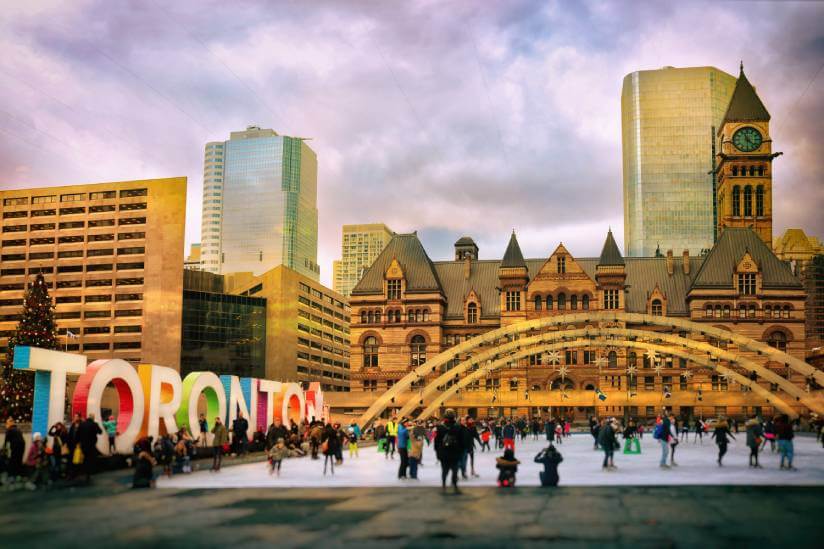
If you plan to relocate to Vancouver or Toronto, expect it to cost you a lot.
While these areas were two of the most popular with immigrants, they’ve become unaffordable for many leading to new arrivals looking to other Canadian cities like Montreal and Calgary to start a new life.
39. Integrating with Canadians might be a challenge
Many immigrants find it difficult to make Canadian friends, so they gravitate towards people from their own country or ethnic background.
Presumably, you’re moving to Canada to experience a new sense of culture, community, food, and experiences so try not to slip into only socializing with people from the same place as you.
Put yourself out there and you might discover a whole new world!
40. Work on some ice breakers
This is especially important if you’re moving to Canada on your own. Making friends is easier if you have some conversation starters.
Canadians are generally very friendly, so more often than not the conversation will flow with little or no effort.
Register for your WHC Jobs Kit for lists of the top ski resort employers in BC and Alberta, our working holiday jobs search tool and much more!
41. Groceries cost a lot
Compared to a lot of countries, buying things like bread and milk can be far more expensive than you’re used to, especially in cities.
Our advice would be to budget and plan your shopping carefully each week or month.
You May Also Like:
The Cost Of Living In Canada
42. Canada has 10 different provinces, so choose wisely
Canada has 10 different provinces and unless you’ve chosen where you want to go before moving to Canada you should probably do your research to find out which area suits your lifestyle best.
There are significant cultural differences throughout the different regions in Canada so it’s a good idea to spend some time looking up some popular areas and comparing them.
43. If you love city life, there are a few places to choose from…
You should consider moving to Toronto (Ontario), Calgary (Alberta), Montreal (Quebec) or Vancouver (British Columbia).
Canada’s cities will come with higher living costs but don’t let that put you off if you love the culture, nightlife, dining out and the buzz of city life.
44. You don’t need to have a job secured before you move to Canada
You don’t need to find a job before you move but it’s a good idea to start looking as soon as you know your visa has been approved or at least within a few weeks of arriving.
45. If you want to move to Canada as a self-employed individual, you’ll need 2+ years’ experience
If you want to move to Canada and work for yourself, then you’ll need to prove that you have at least two years’ experience in a relevant field.
This experience also needs to be recent, within 5 years from the date on which you apply. You’ll also need to be examined by an approved physician and get a police certificate.
46. Marijuana is legal in Canada
If you’re a recreational pot smoker then you’re in luck, in 2018 Canada fully legalized recreational marijuana. It’s socially (and legally) acceptable to pass the dutchie ‘pon the left-hand side.
47. Try to see as much as you can

If you decide that you’re a city person and the great outdoors isn’t for you, try to keep an open mind and explore some of Canada’s beautiful wilderness… even if this means taking on work at a ski resort for a couple of months.
If you’ve moved to Canada to make sure you’re working in the mountains or a small town up north for a year, try to make time to visit some of Canada’s cities.
Canada is huge and super diverse so try your best to experience as much of it as you can. You won’t regret it!
48. Secure your visa
This goes without saying but you’ll need to make sure you sort out a Working Holiday visa before you leave for Canada.
Make sure you meet all the visa requirements before applying.
49. Start saving for your Canadian adventure as soon as you catch yourself daydreaming about leaving
Your visa, first month’s accommodation and flights alone are going to cost you thousands.
As soon as Canada starts calling, stop wasting your money on shopping, takeaways, and trips to the pub and start putting that money towards the adventure of a lifetime!
When you arrive in Canada you’ll want to travel and try out as many activities as you can.
That and the difficulties people face with finding work and accommodation should be motivation to save as much as possible before you leave.
Register for your WHC Jobs Kit for lists of the top ski resort employers in BC and Alberta, our working holiday jobs search tool and much more!
50. Make the most of your working holiday
You’ve decided to move to a new country. Some of you are even flying from halfway across the world.
Things will probably be a little bit stressful. Sometimes you might even be scared. Just remember, this is the opportunity of a lifetime and you should make the most of it!
Canada is a wonderful country full of very cool people and very cool places.
That’s just about everything we can think of to help you prepare for the adventure ahead! Keep an eye out for more useful Canadian working holiday tips!

